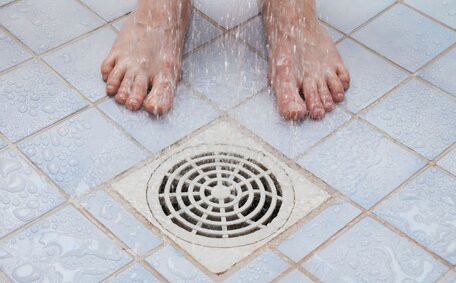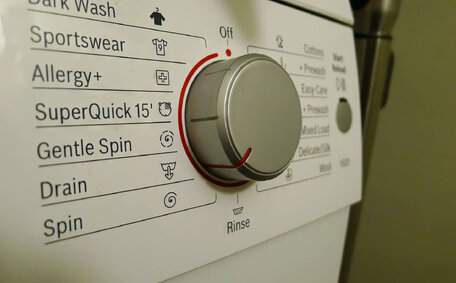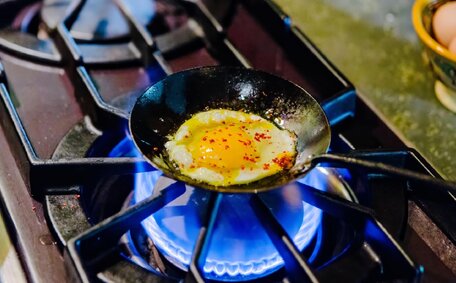
Baking Soda & Vinegar for Cleaning
Using baking soda & vinegar separately for cleaning is very effective; but mixing them dilutes their cleaning power. Learn how to use them properly.
Read MoreUsing natural gas appliances efficiently can significantly lower your energy use, reduce costs, and decrease environmental impact. Older gas appliances in our homes tend to be inefficient, causing wasted energy and excessive costs.
Key gas appliances like stoves, ovens, and hot water systems can account for a significant amount of energy used in Australian homes. An efficient model of a gas hot water system can reduce yearly costs and your carbon footprint significantly compared to an inefficient one that may cost around $300 annually.
Examine the energy rating label to comprehend the typical consumption that make up your energy bill. For example, a 5-star rated gas hot water system can use up to 60% less energy compared to a counterpart with a 2-star rating.
Newer cooking appliances, including induction stoves and efficient stove ovens, also tend to have enhanced door seals, insulation, and safety features. Induction cooktops are significantly more efficient than traditional stovetops and are perfect for when you want to quickly whip up a meal.
Small actions such as utilising a slow cooker, covering pots, fully loading the dishwasher, and powering down unused appliances can slash energy waste.
To read more about our insights on available rebates and incentives for upgrading appliances, email us or give us a call.
When buying new gas appliances, be sure to compare energy efficiency by checking the energy rating labels. Energy rating labels give appliances a star rating from 1 to 10, indicating their energy efficiency.
Select models with higher star ratings, ideally 6 or above, to maximize your energy and cost savings. The more stars, the appliance will use less energy and gas to accomplish the same tasks.
Discover exactly how much energy a 5-star gas hot water system conserves compared to a 2-star system. Such efficiency can translate to over $200 in potential annual savings, depending on your usage patterns.
Choose gas stoves with features like wok burners and superior insulation that are designed for efficiency. And modern gas heaters, including your heater, incorporate new safety features and sealed combustion to prevent heat and energy waste.
Despite the initial higher cost, appliances with superior energy ratings pay off over time through reduced running expenses. Moreover, the enhanced technology of these appliances minimises greenhouse gas emissions.
Installing programmable thermostats can significantly cut heating costs by syncing with energy-efficient appliances. These devices allow you to efficiently manage the energy your household consumes by setting customised temperature schedules.
Programmable thermostats let you adapt to rising energy costs by setting them to turn off your heating when sleeping or out at work. This prevents the unnecessary waste of gas when heating hot water for cooking or warming living spaces. Models equipped with smart technology adapt to household habits and self-adjust for efficiency.
Opt for a model with touchscreen interface that allows easy temperature tweaks. They also offer weekly and weekend settings to adapt to varying schedules. Wi-Fi enabled thermostats can also be controlled remotely via smartphone.
Programmable thermostats lead to a reduced energy bill through optimised gas use efficiency. Potential savings will depend on your existing heating habits. But typically, a programmable thermostat can reduce heating costs by ten to thirty per cent.
Programmable thermostats offer time savings and simplify the management of home heating. No more rushing home to adjust temperatures or having rooms over or under-heated while out. Just set your ideal schedule and let the thermostat handle the rest!
Insulating gas appliances properly is vital for energy efficiency. Without proper insulation, significant heat loss can occur, undermining the efficiency of your appliances.
For optimal efficiency, insulate accessible pipes and fittings in your heating hot water systems with wraps or jackets. Ensure that hot water pipes are insulated for at least the first metre from the unit. Insulate further along pipes that run through unheated areas until your system optimises heat retention.
Gas space heaters also benefit from insulation placed behind and around the unit. Wall insulation and draught proofing can significantly prevent heat from escaping through walls.
Lilyfield Plumbing offers professional insulation solutions to conserve energy from your gas appliances. Our team of qualified technicians can advise the most suitable insulation methods and materials for your home.
Insulating gas appliances properly can lead to significant money savings and energy conservation. Contact us today to discuss your options.
Upgrading to new models featuring the latest in energy-efficient technology can result in substantial cost and energy savings over continuing to operate outdated units. Opting for certified Energy Star or LEED appliances when upgrading can reduce household energy bills by over $1,000 per year.
Heat pumps serve as modern electric alternatives to gas appliances, heating water and spaces more efficiently and with reduced energy use. For instance, energy-efficient appliances like air-to-water heat pumps operate more efficiently than electric resistance heaters and even the best conventional gas systems.
Consider upgrading to efficient electric replacements when it’s time to replace your gas appliances. The higher upfront investment pays dividends through lower running expenses and smaller carbon footprints over time.
Our team of plumbers can help you stay top your household’s energy needs with quotes for upgrading to certified energy-efficient electric models. We stay up to date on the latest rebates and incentives to ease the transition costs.
Investing in appliance upgrades can pay for itself in just a few years through energy savings. Contact us to discuss your replacement options suited to your household.
Consistent maintenance is essential for gas appliances to run efficiently, curtail energy use, and ensure home safety. Follow the manufacturer’s recommendations for cleaning schedules to keep components clear of dust and debris.
Check flexible gas hoses and fittings yearly for leaks as you don’t need extra expenses from unnoticed damage. Watch for bubbles which indicate escaping gas. Have any leaks fixed immediately by a licenced technician.
Arrange professional servicing every 2 years to keep gas appliances performing at their best. Qualified technicians will conduct safety checks, adjust settings, and optimize appliance performance.
Simple maintenance saves money by avoiding expensive repairs down the track. Well maintained gas appliances also tend to last longer while operating more energy efficiently.
For expert gas appliance servicing and repairs, Lilyfield Plumbing offers the experience needed to maintain your systems’ safety and efficiency. Email us or call 1300 349 338 to arrange an obligation-free quote.
As the capabilities of electric appliances in an allelectric home continue to improve, transitioning may become an increasingly viable option for many households. For optimal home heating in the competitive gas market, modern alternatives like reverse-cycle air conditioners or heat pump systems for hot water operate far more efficiently than traditional gas appliances.
Using solar power to optimise electricity consumption can potentially save you more than $890 annually compared to a dual fuel home, thereby reducing gas and electric costs. This is due to lower running costs from induction cooktops and heat pumps along with reduced expenditure on gas connection fees.
Despite higher initial costs, efficient electric appliances offer long-term energy bill savings and reduce your carbon footprint, making them a worthwhile investment. As technology progresses, expect electric alternatives to gas like induction cooktops and heat pumps to become even more affordable and efficient.
The Australian government alongside your local energy retailer offers several incentives for homeowners looking to boost the energy efficiency of their homes with efficient appliances. These can help reduce the upfront costs involved when upgrading gas appliances or making other sustainable improvements.
One great example is the Sustainable Household Scheme in the ACT. This provides rebates of up to $2,000 when switching gas appliances to efficient electric alternatives such as heat pumps or induction cooktops. Rebates are also available in other states.
The federal government’s Renewable Energy Target scheme encourages the uptake of solar PV through rebates and feed-in tariffs. Combining solar with efficient electric appliances maximises long-term savings on energy bills.
Lilyfield residents can also benefit from government schemes when purchasing ENERGY STAR certified appliances like your fridge. Washing machines, fridges, and other appliances with this rating lead to lower running costs over time.
Learn how our team keeps up with the latest energy efficiency government incentives that can save homeowners in your area money on upgrades. We handle all the paperwork to ensure you receive the full rebates you are entitled to.
Contact Lilyfield Plumbing to find out more about reducing upgrade costs through state and federal renewable energy, efficiency and sustainability schemes.
There are many simple ways to save additional energy around your home and reduce your gas usage:
Changing habits to save energy results in lower bills and a reduced household environmental impact.
Check out our tips using the latest advancements at Lilyfield Plumbing to help you save.Email us or call 1300 349 338 for energy-saving information and advice tailored to your household.
Using baking soda & vinegar separately for cleaning is very effective; but mixing them dilutes their cleaning power. Learn how to use them properly.
Read MoreBlocked drains are usually caused by buildup of hair, grease, debris and more in your pipes. Fix the problem with professional drain unblocking services to get your drains flowing freely again. Contact us for affordable drain unblocking.
Read MoreWhen you suspect a gas leak or damaged gas line, contact a licensed gas fitter immediately to locate and repair it. A gas line repair involves sealing leaks, replacing corroded or damaged pipes and testing all connections for safety before restoring gas supply.
Read MoreLilyfield, 2040 NSW
We will call back as soon as possible.




